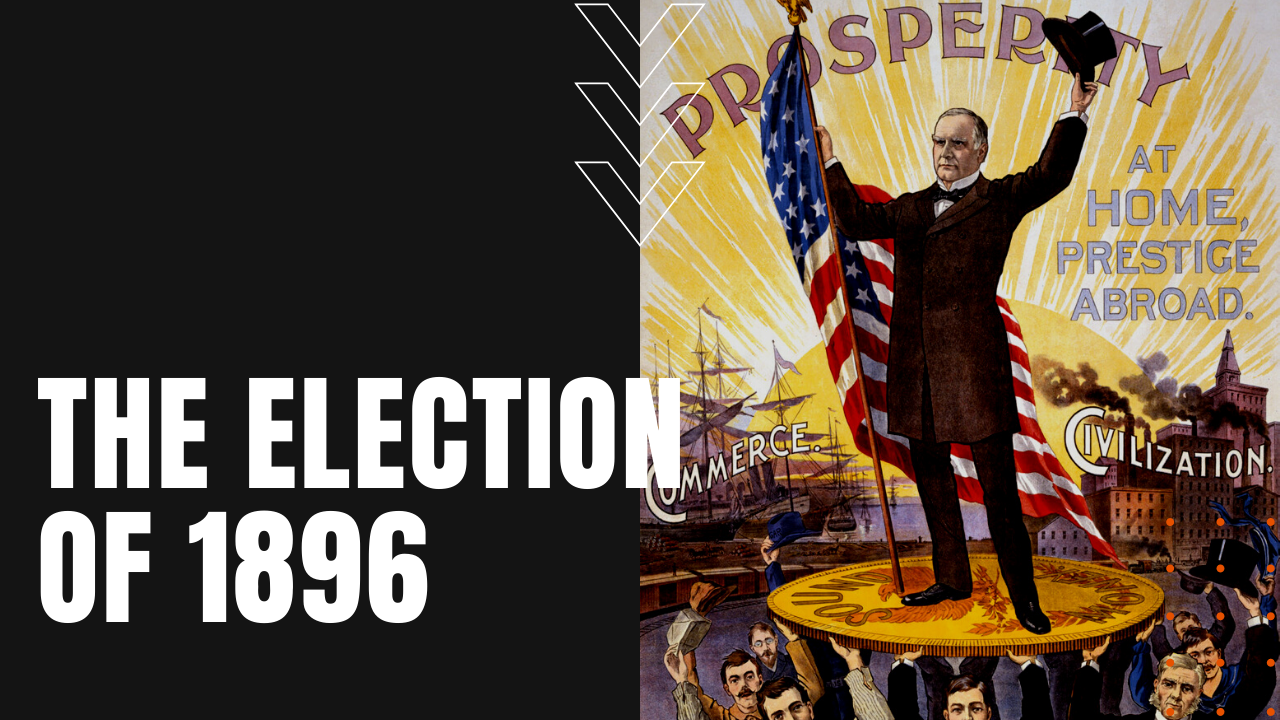The Pivotal Presidential Election of 1896

During the late 1800s, one of the weightiest political topics was whether the American dollar should be backed by gold or silver. While sitting President Grover Cleveland favored the gold standard, many in the Populist Party and the rural, agrarian wing of the Democratic Party supported the Free Silver Movement. Silver was abundant at the time, thanks to the recent Comstock Silver Lode Bonanza, prompting farmers to believe that a shift to silver would inflate currency in their favor, thereby increasing the prices farmers could receive for their crops, which would, in turn, help them pay down their debts.
Democrats Back William Jennings Bryan
When the Democrats convened in Chicago to choose their presidential candidate in July of 1896, they turned their back on President Cleveland’s support of the gold standard, making silver a central plank in their party platform. Instead, the convention threw its weight behind young rising star William Jennings Bryan, who delivered what would become one of the most famous political orations in history of American politics. Known as the “Cross of Gold” speech, he brought the convention to its feet when he said
“You shall not press down upon the brow of labor this crown of thorns,” he bellowed to the room, placing an imaginary crown on his head. “You shall not crucify mankind upon a cross of gold.”
William Jennings Bryan
Bryan traveled nearly 20,000 miles by rail around the country during his campaign and gave hundreds of speeches, often out of the back of his railroad car. Huge crowds greeted him everywhere, drawn by his oratorical skills and the passion he inspired in his supporters. In the end, despite Bryan’s herculean efforts, his campaign failed to broaden its support beyond its Populist, agrarian Democratic base.
Gold vs. Agrarian
More conservative Democrats, who favored the gold standard, split from the party to nominate their own National (Gold) Democratic candidate, or even threw their support behind Republican candidate William McKinley.
Republicans managed to attract some urban progressive voters by attacking Bryan as a religious fanatic, in addition to painting a dire picture of what abandoning the gold standard would mean for the American economy. On Election Day, voter turnout topped 79%, reflecting the high stakes of the contest.
McKinley won some 600,000 more popular votes than Bryan, the widest margin since 1872, while his win in the electoral college (271 to 176) was even more decisive. Much like the elections of 1800, 1860 and 1932, the presidential election of 1896 marked a fundamental shift in American politics, and the emergence of a new political reality that reflected the nation’s changing demographics.
McKinley’s win began an era of Republican dominance and economic prosperity that would last for nearly four decades, foretelling the beginning of the end for the Populist Party. More importantly, the contentious election of 1896 marked a decisive tipping point for the nation’s urban interests in banking, manufacturing and industry, while turning away from the nations agrarian past.
With Americans migrating to cities at a rapidly increasing rate in the last decade of the 19th century, Bryan would be the last candidate to run for president by appealing exclusively to the country’s rural base.
